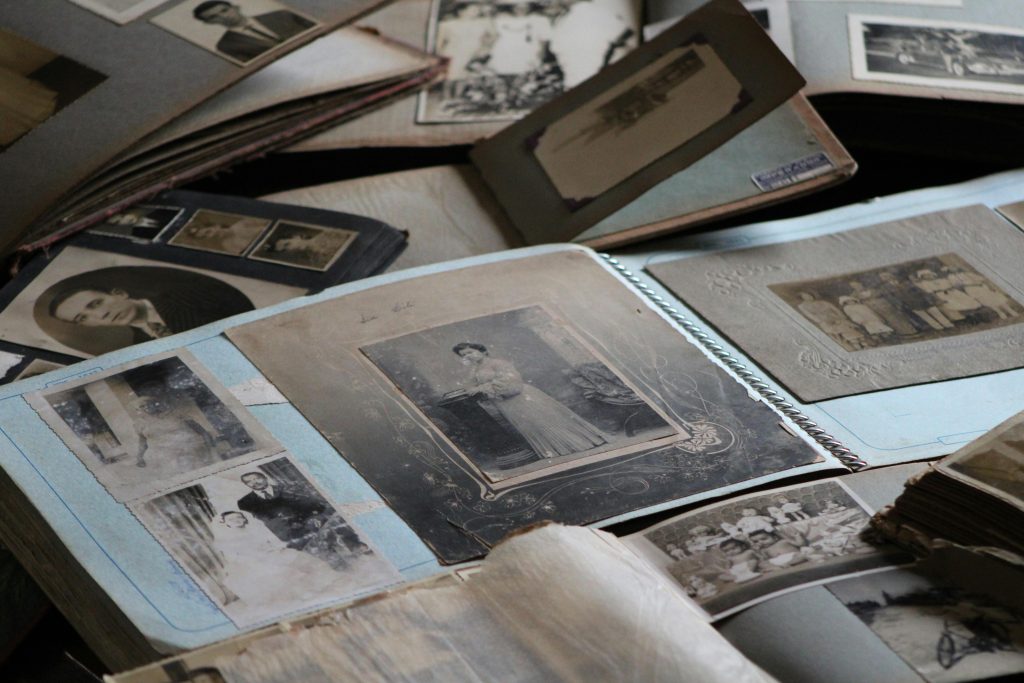Creating a Legacy for Future Generations Through Storytelling
March 31, 2025
The story of every family is built on defining moments that shape its identity and history. These narratives range from tales of adventure and resilience to stories of quiet sacrifices and pivotal life events. However, memories fade over time, even when they hold deep meaning. As details blur and stories vanish, future generations lose the chance to fully understand their family’s past.
For centuries, oral storytelling was the primary way families preserved their histories. Grandparents shared childhood memories, parents recounted ancestral legacies, and together, these stories formed the foundation of a family’s identity. When recorded and shared, family stories become powerful and enduring, reaching future generations in unexpected ways.
Family history books, legacy books, and ancestry books ensure these stories endure. By capturing histories in beautifully written and well-organized formats, families create something tangible for future generations rather than relying solely on oral tradition.
However, crafting such a book requires time, dedication, and expertise. The task of gathering historical details spanning decades or centuries and shaping them into an engaging, accurate narrative can be overwhelming. This is where a family history ghostwriter becomes invaluable.
The Challenges of Creating a Family History Book
Writing a family history book is deeply rewarding, but it also presents numerous challenges. While families often begin these projects with enthusiasm, they quickly encounter obstacles in organizing, researching, and writing a complete book.

One of the biggest challenges is time. Between work, family responsibilities, and daily obligations, many people struggle to carve out enough time to write.
What starts as a weekend project often stretches into months or even years, leading to unfinished manuscripts and lost motivation.
Another challenge is structuring the story.
Family history is rarely a neat, chronological record. Instead, it exists in scattered pieces—old letters, photographs, newspaper clippings, and personal memories—often with gaps or conflicting details.
Turning these fragments into a compelling, readable narrative requires strong organizational skills and storytelling expertise.
A simple list of dates and events won’t hold a reader’s attention, but a well-crafted narrative that brings ancestors to life will.
Historical accuracy is another concern. Family legends, while cherished, often mix truth with embellishment, passed down through generations without verification. Ensuring accuracy requires thorough research—cross-referencing documents, tracking missing details, and confirming historical context, a time-consuming and sometimes frustrating task.
Emotional challenges also arise. Revisiting past events, especially those involving hardship or loss, can bring unexpected emotions to the surface. Many writers find themselves overwhelmed, hesitant to share certain details, or worried about how family members will react to sensitive stories.
These challenges explain why so many family history projects remain incomplete. A family history ghostwriter provides essential support, ensuring that families don’t have to navigate the process alone.
How a Ghostwriter Simplifies the Process
A family history ghostwriter transforms scattered memories and documents into a beautifully written book. Instead of struggling with writer’s block, unorganized notes, and endless research, families can entrust a professional to craft their history into an engaging, polished narrative.
But what exactly does a ghostwriter do? And how does their work benefit the family?
The most significant advantage of hiring a ghostwriter is their expertise in storytelling. Writing a book is more than just listing names and dates—it requires weaving a captivating story that breathes life into ancestors. A skilled writer blends rich descriptions, historical context, and emotional depth, creating a narrative that connects readers to the past.

Ghostwriters also provide structural guidance.
Many families have a wealth of notes, interviews, and photographs but struggle to organize them into a cohesive book.
A professional writer arranges these elements into a flowing narrative with a clear beginning, middle, and end, transforming fragmented memories into a compelling and structured story.
Research expertise is another major benefit. Family history books require meticulous fact-checking, historical background research, and detail verification. Ghostwriters have experience navigating archives and genealogical sources, ensuring accuracy and filling in missing details. This is especially valuable when resolving conflicting family narratives or adding historical context.
Perhaps the greatest advantage is saving time and effort. Writing a book is an immense undertaking, but a ghostwriter handles the heavy lifting. Families can focus on sharing their stories while the writer manages the drafting, editing, and refining. What might take years to complete alone can be finished in a fraction of the time with professional assistance.
Some worry that hiring a ghostwriter will result in a book that lacks their personal voice. However, a skilled ghostwriter captures the client’s tone and vision, ensuring the final product feels authentic and deeply personal. As Ernest Hemingway famously said, writing is about sitting at a typewriter and bleeding—fortunately, with a ghostwriter, families don’t have to go through that process alone.
Collaborating with a Ghostwriter
Hiring a family history ghostwriter isn’t about handing off a story to a stranger—it’s a collaborative process. The ghostwriter works closely with the family to create an accurate and meaningful representation of their legacy.

The process begins with an initial consultation, where the writer learns about the family’s goals.
Is the book meant to be a comprehensive ancestral history spanning generations, or does it focus on the personal memories of a specific family member?
This step ensures that the final book reflects the family’s unique story in the way they envision it.
Next comes the information-gathering phase. Old letters, photographs, personal interviews, and historical records are collected and reviewed. Family members may share recorded conversations or handwritten journals—priceless resources that help shape the book. The ghostwriter organizes these materials, identifies missing details, and establishes a narrative structure.
A structured outline is then developed to map out the story’s flow. Whether arranged chronologically or thematically around major life events and traditions, this framework ensures a seamless and engaging narrative.
With the outline in place, the ghostwriter begins writing the draft, crafting each chapter with vivid detail and historical context to bring the family’s past to life. Families provide feedback throughout this stage to ensure the book aligns with their expectations.
Once the draft is complete, the book undergoes extensive revisions. Editing focuses on refining language, enhancing readability, fact-checking historical details, and maintaining consistency in tone and style. The goal is to create a polished, compelling book that accurately reflects the family’s history.
After final revisions, the book moves into the publishing stage. Whether producing beautifully bound hardcover copies for relatives or digital versions for wider sharing, a ghostwriter provides guidance throughout the process. Some families even choose to self-publish their books for inclusion in libraries or historical archives.
The end result is a beautifully crafted legacy book that captures the family’s story in a way future generations will cherish. Best of all, families don’t have to tackle the journey alone.
The Lasting Value of a Family History Book
A family history book is more than just a collection of names and dates—it is a lasting legacy. It preserves the struggles, triumphs, and defining moments that shaped a family’s story.
A professionally written book stands apart from unfinished manuscripts collecting dust in a drawer. With the help of a ghostwriter, families ensure their narratives receive the detail and creative presentation they deserve.

Accuracy and thoroughness are also key benefits. Family stories passed down over generations often contain missing or conflicting details.
A professional writer conducts the necessary research to confirm facts and organize events chronologically, creating a well-researched and historically accurate book.
The emotional impact of a family history book is profound. A beautifully written book transforms fleeting recollections into an enduring legacy, allowing future generations to connect with their heritage. As Joan Didion once said, “We tell ourselves stories in order to live.” Family history books affirm that “We were here. Our story matters.”
Preserve Your Legacy
The stories of your ancestors are more than memories—they are the foundation of your family’s identity. Every struggle, triumph, and tradition has shaped the generations that followed.
A family history book is not just a way to look back—it offers future generations a window into their past, a sense of belonging, and a deeper appreciation for their roots.

The best time to start documenting your family’s history is now.
Whether you have letters and photos or only a few cherished stories passed down through the years, these moments deserve to be preserved.
And you don’t have to do it alone.
A family history ghostwriter can help transform your memories into a beautifully crafted book that future generations will treasure.
If you’re ready to bring your family’s story to life, reach out today. Let’s create something meaningful together—something that will stand the test of time.






























